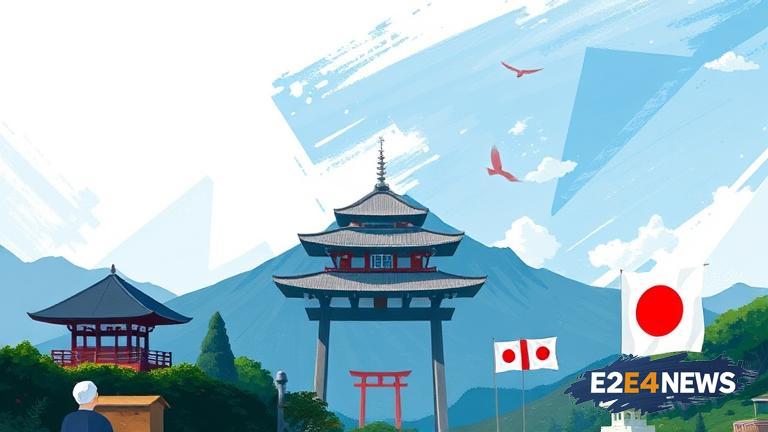Japan’s history has been marked by periods of conflict and aggression, but in recent years, the country has been seeking to redefine its role in the region and promote peace and stability. This shift in approach is driven by a desire to move beyond the legacy of World War II and establish Japan as a responsible and respected member of the international community. To achieve this goal, Japan must develop a true vision of peace, one that is grounded in a deep understanding of the complexities of international relations and the needs of its neighbors. This vision must be based on a commitment to diplomacy and cooperation, rather than relying solely on military power or economic might. Japan’s relations with its neighbors, particularly China and South Korea, are critical to its pursuit of peace. The country must work to resolve historical disputes and promote greater understanding and cooperation with these nations. This can be achieved through a range of initiatives, including cultural exchange programs, economic cooperation, and joint efforts to address regional security challenges. Japan must also play a more active role in regional organizations, such as the Association of Southeast Asian Nations (ASEAN), to promote greater cooperation and stability in the region. Furthermore, Japan must be willing to confront its own history and acknowledge the harm caused by its past actions, rather than trying to revise or distort them. This requires a willingness to listen to the perspectives of other nations and to learn from their experiences. By taking a more nuanced and empathetic approach to international relations, Japan can build trust and credibility with its neighbors and promote a more peaceful and stable region. Japan’s pursuit of peace is not just a moral imperative, but also a strategic necessity. In a rapidly changing world, Japan must be able to adapt and respond to new challenges and opportunities, and a commitment to peace and cooperation is essential to achieving this goal. The country’s economic and security interests are closely tied to its ability to promote stability and cooperation in the region, and a failure to do so could have significant consequences for its future prosperity and security. In addition to its relations with its neighbors, Japan must also consider the role of other major powers in the region, including the United States and China. The country must be able to navigate these complex relationships and promote greater cooperation and understanding between these nations. This requires a deep understanding of the interests and motivations of each country, as well as a willingness to engage in constructive dialogue and negotiation. Japan’s pursuit of peace is a long-term effort that will require patience, persistence, and creativity. The country must be willing to take a flexible and adaptive approach, one that is responsive to changing circumstances and open to new ideas and initiatives. By working together with its neighbors and other major powers, Japan can promote a more peaceful and stable region, and establish itself as a responsible and respected member of the international community. The benefits of this approach are clear, and include increased economic cooperation, improved security, and a greater sense of trust and understanding between nations. However, there are also challenges and obstacles to be overcome, including historical disputes, competing interests, and the risk of conflict. To succeed, Japan must be willing to take a leadership role in promoting peace and cooperation, and to work tirelessly to build trust and credibility with its neighbors. This requires a deep commitment to diplomacy and cooperation, as well as a willingness to listen and learn from others. By taking this approach, Japan can create a brighter future for itself and for the region, one that is marked by peace, stability, and cooperation.
